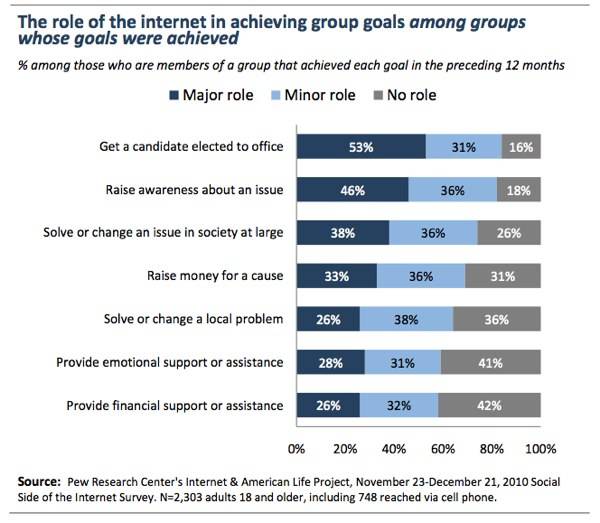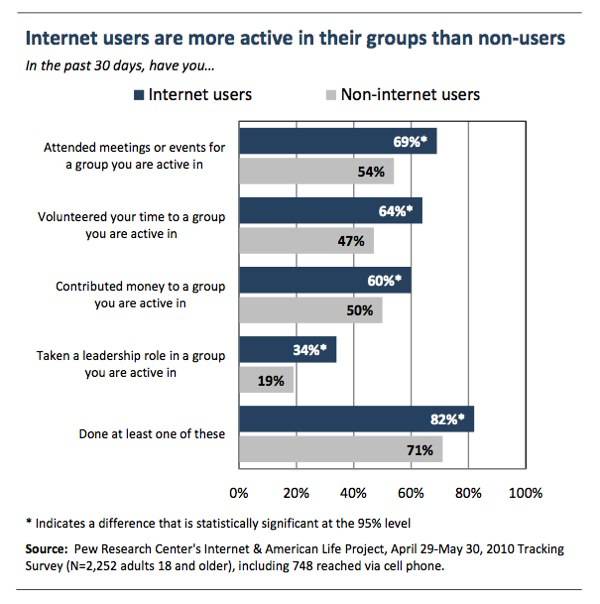That old stereotype that Internet users are isolated and anti-social is getting harder and harder to justify. In fact, the latest study from the Pew Internet and American Life Project, aptly titled “The Social Side of the Internet,” challenges this notion even further, finding that Internet users are actually more active in voluntary groups and organizations than non-Internet users.

According to the research, 75% of all American adults participate in some group activity. But the difference between Internet users and non-Internet users is rather striking, with 80% of the former and only 56% of the latter active in groups. The research found that social media users are even more likely to be group participants: 82% of social network users and 85% of Twitter users are, for example.
Internet Is Making Us More Socially Engaged, Making Groups More Effective
The survey finds that most Americans see the Internet as having a major impact on groups’ organization, communication, and effectiveness. 68% of all Americans – both Internet users and non-users – say the Internet has had a major impact on the ability of groups to communicate with members. And 62% say the Internet has had a major impact on the ability of groups to bring attention to an issue.

Social Networks and Group Participation
The survey finds that social media and social networking sites in particular have become important tools for groups and organizations. 48% of those who are active in groups say that those groups have a Facebook page, and 42% say the groups they’re active in use text messaging. 30% say their groups have their own blog, and 16% say the groups communicate with members via Twitter.

It isn’t simply that Internet users are more active in groups and organizations. According to the survey’s findings, these people are also more likely to feel a sense of pride and accomplishment about their contributions. That’s an important feeling for groups to be able to encourage in their members, one that in turn likely prompts continued participation.
For people who want to be involved in groups, who want to make a difference, and who want to work with people they trust, this survey finds the Internet is likely the place where they organize themselves.

















